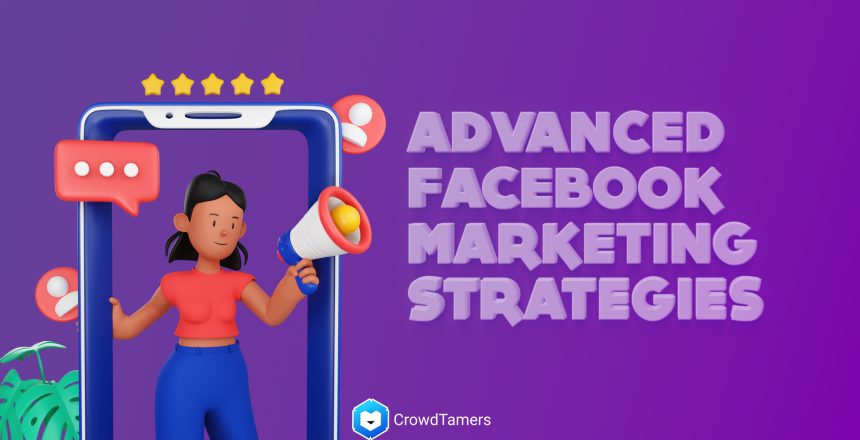Gone are the days when simply having a Facebook presence was enough. To truly validate your startup idea and drive meaningful growth, you need to think outside the box and use the platform’s most sophisticated tools and techniques.
In this article, we’ll take you on a journey through the cutting edge of Facebook marketing strategies. From the technical wizardry of schema markup and Open Graph tags to the mind-bending potential of augmented reality ads, we’ll show you how to push the boundaries of what’s possible on the platform.
Integrating Facebook Marketing with Your SEO Strategy
Facebook marketing and search engine optimization (SEO) may seem like two distinct disciplines, but integrating them can significantly boost your startup’s online presence and help validate your business idea. One crucial aspect of this integration is the use of schema markup and Open Graph tags.
Schema markup is a type of microdata that you can add to your website’s HTML to provide search engines with more information about your content. By including schema markup for your Facebook posts and ads, you can help search engines better understand and display your content in search results.
Open Graph tags, on the other hand, are specific meta tags that you can add to your website to control how your content appears when shared on Facebook. These tags allow you to specify the title, description, image, and other details of your shared content, making it more engaging and appealing to potential customers.
To implement schema markup and Open Graph tags, you’ll need to add specific code snippets to your website’s HTML. For example, to add Open Graph tags, you would include the following in the <head> section of your page:
htmlCopy code
<meta property="og:title" content="Your Page Title">
<meta property="og:description" content="Your Page Description">
<meta property="og:image" content="<https://example.com/your-image.jpg>">
<meta property="og:url" content="<https://example.com/your-page>">
Advanced Targeting Techniques for Facebook Ads
Facebook’s advanced targeting options allow startups to reach highly specific audiences, increasing the chances of validating their business idea. Some powerful targeting techniques include:
- Custom Audiences: Upload your existing customer data (e.g., email addresses, phone numbers) to create a Custom Audience. Facebook will match this data with its users, allowing you to target ads to people who have already interacted with your business.
- Lookalike Audiences: Once you’ve created a Custom Audience, you can use it to create a Lookalike Audience. Facebook will find users who share similar characteristics with your Custom Audience, expanding your reach to potential customers who are more likely to be interested in your startup.
- Life Events: Target users based on significant life events, such as getting married, having a baby, or moving to a new home. This can be particularly effective if your startup’s product or service is related to these milestones.
- Detailed Targeting: Utilize Facebook’s extensive demographic, interest, and behavioral data to create highly targeted ad campaigns. For example, if your startup offers a fitness app, you could target users interested in health and wellness, fitness equipment, and specific workout routines.
The Future of Augmented Reality Ads on Facebook
Augmented reality (AR) is rapidly changing the way businesses interact with customers on Facebook. By incorporating AR into your Facebook marketing strategy, you can create immersive experiences that showcase your startup’s products or services in a highly engaging way.
One example of a brand successfully using AR ads on Facebook is Michael Kors. The luxury fashion brand created an AR ad that allowed users to virtually try on sunglasses, enabling them to see how different styles would look on their faces. This interactive experience not only increased engagement but also helped drive sales.
As AR technology continues to advance, startups will have even more opportunities to create innovative ad experiences on Facebook. For example, a furniture startup could create an AR ad that allows users to visualize how a piece of furniture would look in their home, helping to validate the startup’s product offerings and drive sales.
To create AR ads on Facebook, startups can use the Spark AR Studio, a user-friendly tool that allows businesses to design and publish AR effects across Facebook’s family of apps. By staying ahead of the curve and incorporating AR into their Facebook marketing strategy, startups can differentiate themselves from competitors and validate their business ideas in a highly engaging way.
Influencer Marketing on Facebook
Influencer marketing has become an increasingly popular way for startups to validate their business ideas and reach new audiences on Facebook. By partnering with influencers who have a strong presence in your niche, you can tap into their engaged follower base and gain valuable social proof for your products or services.
When implementing an influencer marketing strategy on Facebook, it’s essential to work with a mix of micro-influencers and macro-influencers. Micro-influencers typically have a smaller but highly engaged following, while macro-influencers have a larger reach but may have a less targeted audience.
To find influencers in your niche, you can use tools like BuzzSumo or Hootsuite, which allow you to search for influencers based on keywords, topics, or location. Once you’ve identified potential partners, reach out to them with a personalized message and a clear value proposition for your startup.
When collaborating with influencers, be sure to set clear expectations and goals for the partnership. This may include specific metrics like engagement rates, conversions, or sales. By tracking the success of your influencer marketing campaigns, you can continually refine your strategy and validate your startup’s business idea.
Implementing Facebook Messenger Bots for Engagement
Facebook Messenger bots are automated programs that can interact with users through the Messenger app, providing personalized experiences and valuable information. By implementing a Messenger bot for your startup, you can increase engagement, provide customer support, and even drive sales.
One example of a startup successfully using a Messenger bot is Sephora. The beauty retailer’s bot allows users to book appointments, receive personalized product recommendations, and watch tutorial videos, creating a seamless and engaging customer experience.
To create a Messenger bot for your startup, you can use tools like MobileMonkey or Chatfuel, which offer user-friendly templates and drag-and-drop interfaces. When designing your bot, focus on creating a conversational flow that addresses your target audience’s pain points and provides value at each interaction.
Exploring Facebook Marketplace for Business Opportunities
Facebook Marketplace is a platform where users can buy and sell items locally, offering a unique opportunity for startups to validate their business ideas and reach new customers. By listing your products or services on Marketplace, you can tap into a highly targeted local audience and gather valuable feedback on your offerings.
To get started with Facebook Marketplace, create listings for your products or services, including high-quality images, detailed descriptions, and competitive pricing. Be sure to respond promptly to any inquiries or messages from potential customers, as this can help build trust and credibility for your startup.
As you gather data from your Marketplace listings, use this information to refine your product offerings and marketing strategy. For example, if you notice a particular product selling well on Marketplace, consider featuring it more prominently in your other Facebook marketing efforts.
The Role of Artificial Intelligence in Facebook Marketing
Artificial intelligence (AI) is playing an increasingly important role in Facebook marketing, helping startups to automate processes, optimize ad performance, and deliver personalized experiences to customers. By incorporating AI into your Facebook marketing strategy, you can validate your startup’s business idea more effectively and efficiently.
One example of AI in action is Facebook’s Automated Ads feature, which uses machine learning to help businesses create and optimize ad campaigns. The tool provides tailored recommendations based on your business goals, target audience, and budget, saving time and improving ad performance.
Another way startups can leverage AI is through chatbots, as mentioned earlier. By using natural language processing (NLP) and machine learning, chatbots can understand and respond to user inquiries, providing personalized recommendations and support.
AI can also help startups analyze vast amounts of data from their Facebook marketing efforts, uncovering valuable insights and patterns that may not be immediately apparent to human analysts. Tools like Facebook Analytics use AI to provide detailed audience insights, helping startups to refine their targeting and messaging.



